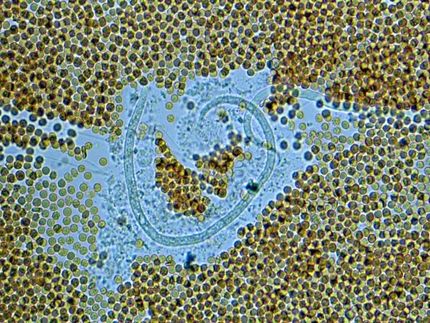HIV vaccine regimen demonstrates modest preventive effect in Thailand clinical study
Advertisement
In an encouraging development, an investigational vaccine regimen has been shown to be well-tolerated and to have a modest effect in preventing HIV infection in a clinical trial involving more than 16,000 adult participants in Thailand. Following a final analysis of the trial data, the Surgeon General of the U.S. Army, the trial sponsor, announced that the prime-boost investigational vaccine regimen was safe and 31 percent effective in preventing HIV infection.
"These new findings represent an important step forward in HIV vaccine research," says Anthony S. Fauci, M.D., director of the National Institute of Allergy and Infectious Diseases (NIAID), part of the NIH, which provided major funding and other support for the study. "For the first time, an investigational HIV vaccine has demonstrated some ability to prevent HIV infection among vaccinated individuals. Additional research is needed to better understand how this vaccine regimen reduced the risk of HIV infection, but certainly this is an encouraging advance for the HIV vaccine field.
"We thank the trial staff in Thailand and the United States for their years of effort in successfully conducting this study and the study participants and the people of Thailand for their long-standing support of HIV vaccine research," Dr. Fauci adds.
The Thai Phase III HIV vaccine study, also known as RV144, opened in October 2003. The placebo-controlled trial tested the safety and effectiveness of a prime-boost regimen of two vaccines: ALVAC-HIV vaccine (the primer dose), a modified canarypox vaccine developed by Sanofi Pasteur, based in Lyon, France, and AIDSVAX B/E vaccine (the booster dose), a glycoprotein 120 vaccine developed by Vaxgen Inc., and now licensed to Global Solutions for Infectious Diseases (GSID), based in South San Francisco, Calif. The vaccines are based on the subtype B and E HIV strains that commonly circulate in Thailand. The subtype B HIV strain is the one most commonly found in the United States.
Led by principal investigator Supachai Rerks-Ngarm, M.D., of the Thai Ministry of Public Health's Department of Disease Control, the study was sponsored by the U.S. Army in collaboration with NIAID, Sanofi Pasteur and GSID. The trial, conducted in the Rayong and Chon Buri provinces of Thailand, enrolled 16,402 men and women ages 18 to 30 years old at various levels of risk for HIV infection. Study participants received the ALVAC HIV vaccine or placebo at enrollment and again after 1 month, 3 months, and 6 months. The AIDSVAX B/E vaccine or placebo was given to participants at 3 and 6 months. Participants were tested for HIV infection every 6 months for 3 years. During each clinic visit, they were counseled on how to avoid becoming infected with HIV.
In the final analysis, 74 of 8,198 placebo recipients became infected with HIV compared with 51 of 8,197 participants who received the vaccine regimen. This level of effectiveness in preventing HIV infection was found to be statistically significant. The vaccine regimen had no effect, however, on the amount of virus in the blood of volunteers who acquired HIV infection during the study.
"The Thai study demonstrates why the HIV vaccine field must take a balanced approach to conducting both the basic research needed to discover and design new HIV vaccines and, when appropriate, testing candidate vaccines in people," says Margaret I. Johnston, Ph.D., director of NIAID's Vaccine Research Program within the Division of AIDS. "Both avenues provide critical information that will continue to help us better understand what is needed to develop a fully protective HIV vaccine."





















































